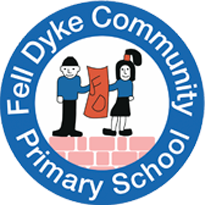Personal, Social & Health Education
Our Aim
At Fell Dyke, we aim to ensure that our children become confident, resilient and lifelong learners. We intend that our pupils will develop self-esteem, self-discipline and mutual respect to enable them to live life successfully within our diverse British society.
Personal, Social and Health Education (PSHE) is taught in such a way as to reflect the overall aims, values and ethos of our school. This includes being kind and friendly to others; showing determination to be the best they can be; demonstrating a love of learning and ensuring everyone is treated equally. The PSHE curriculum at Fell Dyke encourages a safe learning space where children are listened to, valued, praised and equipped with the skills they need to be a well-rounded citizen in school and in the wider community.
Curriculum Organisation
Our PSHE curriculum features a strong emphasis on building emotional resilience and developing emotional literacy to support children to become self-aware and manage feelings. At Fell Dyke, we also promote mindfulness to allow children to develop spiritually and reflect not only on their learning but their mental well-being.
In Key Stage 1 and 2, PSHE is implemented using the JIGSAW programme which is a progressive whole school approach. Jigsaw holds children at its heart, and its cohesive vision helps children understand and value how they fit into and contribute to the world. As the name suggests, the scheme of work is designed into six ‘puzzle pieces’. These are taught half termly with each year group studying the same unit at the same time. Learning takes place weekly through whole class PSHE lessons which cover themes in an age-appropriate manner.
The themes covered across the six puzzle pieces are:
- Being Me in My World
- Celebrating Differences (including anti-bullying)
- Dreams and Goals
- Healthy Me
- Relationships
- Changing Me (including relationship education)
In each lesson there are two learning intentions: one specific to relationships and health education and the other designed to develop the children’s emotional literacy and social skills. Within a session, children are given the opportunity to connect with their peers through games which encourage collaborative learning and positive social skills; share their thoughts and feelings on new learning; consider how to accommodate new learning and skills and reflect on and evaluate their thoughts and feelings. As well as this, children are given the opportunity to be mindful and practise how to breathe to relax, quieten thoughts and regain focus and control.
In the Early Years Foundation Stage (EYFS), PSHE and citizenship is an integral part of the children’s learning journey and is embedded throughout the curriculum. The Personal, Social and Emotional Development (PSED) strand of ‘Birth To Five’ is used as a reference point to support practitioners to implement the Statutory Framework for EYFS. At the end of the EYFS children’s PSED skills are assessed against this Early Learning Goal.
The themes from our PSHE curriculum are embedded throughout school life. Children are encouraged to use the skills they are developing to deal with relationships, experiences and make links to other areas of learning. We record a snapshot of our learning journey through class floor books which support us to reflect and revisit skills. Key ideas from our puzzle pieces are also woven into our key stage, class and singing assemblies to facilitate whole-school learning themes.
Knowledge, Progress and Assessment
After progressing through the PSHE curriculum at Fell Dyke, the children should have acquired the knowledge and skills to become the best individual that they can be. This is evidenced through a wide range of media captured in class floor books such as photographs, drawings and responses to key questions. Furthermore, children are given opportunities to share their thoughts and feeling independently and through group discussions and debates. The biggest and perhaps the most valuable form of assessment comes from the children themselves and them being able to apply their learning within school and their day-to-day lives.
